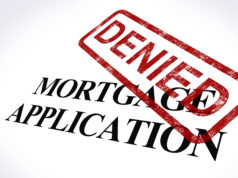Contractors often approach us for guidance on how they can become a property landlord. Here are some practical steps to start your journey.
1) Finances – Pull together a summary of your financial position, e.g., information detailing your income, expenses (essential and non-essential), debts, and assets. If you intend to release equity on your primary residence, then have your current mortgage details in hand.
2) An Agreement in Principle (AIP) – Approach someone like Wilcox Day Wealth Management — a specialist adviser that understands contractors — to work with the right lender for you and get you an AIP. An AIP gives you the ability to find a property and be taken seriously about your intentions.
3) Find your ideal property – You’ve shared your finances, you have an idea what you can borrow, now it is time to narrow down your searches and make an offer.
4) Negotiate – Negotiate a price on the property you intend to purchase. Remember that the rental yield will typically need to be at least 125% of the annual repayments. Make sure you know what the rental yield will be before starting the negotiation.
5) Mortgage Application – You have an AIP, an agreed-upon purchase price, and a clear idea on the rental yield. Now you can start the formal mortgage application. Having good credit is always helpful, so make sure you are doing everything you can to improve it for this stage of the process.
6) The process: buying a house in the UK is not an overnight process. You will need to appoint a solicitor. Searches are needed, you may wish to have surveys completed and further investigatory work may be required. All of the above takes time. Both parties’ (buyer and seller) solicitors will come back with lots of questions, and this is your opportunity to ask as many as you feel necessary. Be patient.
7) The solicitor requires your deposit, and you can exchange contracts. As part of this, you will need to agree on completion dates with the solicitors and the seller.
All going well, this goes off without a hitch, and you now have a property you can let out and create a second income stream.
Your home may be repossessed if you do not keep up repayments on your mortgage.
This article was provided to us by Geoff Day at Wilcox Day Wealth Management Ltd. Please note this does not imply endorsement by us.
You can review further articles that may be relevant, please visit www.wilcoxday.co.uk/contractors
Wilcox Day Wealth Management Ltd is an Appointed Representative of and represents only St. James’s Place Wealth Management plc (which is authorised and regulated by the Financial Conduct Authority) for the purpose of advising solely on the Group’s wealth management products and services, more details of which are set out on the Group’s website www.sjp.co.uk/about-st-james-place/our-business/our-products-and-services. The ‘St. James’s Place Partnership’ and the titles ‘Partner’ and ‘Partner Practice’ are marketing terms used to describe St. James’s Place representatives.









